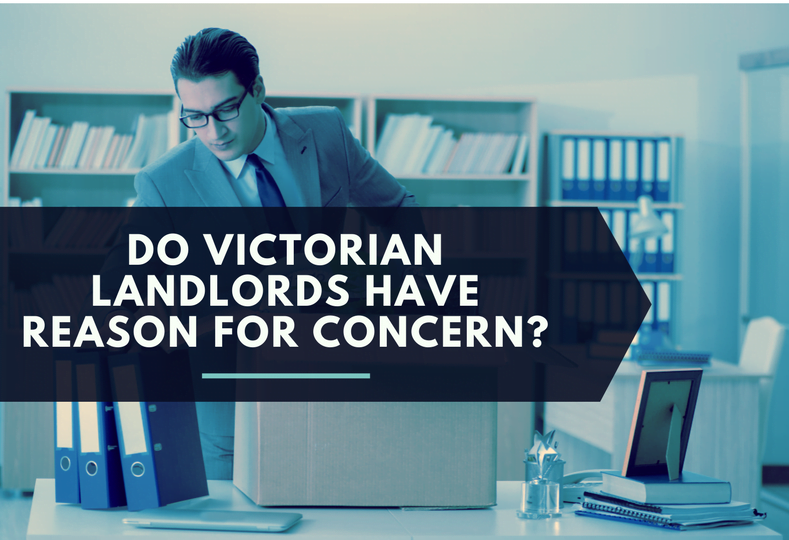
Planned Changes to Victorian Rental Laws. Do Landlords Have Reasons for Concern?
In 2018, the Andrews government plans to make changes to Victorian rental laws – how will they affect you as a landlord?
If you’re a landlord in Victoria, you’re probably aware the Andrews government has a few changes up their sleeve in regards to the current rental laws. Their intention is to give renters more power.
Naturally, it’s creating a bit of a stir.
Many welfare groups and renters have welcomed what they claim is a fairer deal, but the REIV is concerned changes will unfairly penalise “mum and dad” investors who make up the bulk of landlords.
If you’re a landlord, talk about changes may have you a little on edge.
To help bring some peace of mind – let’s look at the main changes to the Victorian rental laws and how they could affect you.
Longer, better security for renters
Today 1 in 4 Australians rent. And as the property market rises, many will never be able to afford to own their home. So it’s only fair they get to feel more secure about renting. What is the Andrews government proposing?
Scrapping the 120 ‘no specified reason’ to vacate
Which means, as a landlord, you’ll need a valid reason to end a tenancy. While this might create some concern, there’s an extensive list of reasons outlined in the Residential Tenancy Act (RTA) to protect you, including property damage caused by the tenant, failure to pay rent or if you intend to renovate or sell.
The changes are more about tackling the problem of ‘revenge’ or unfair evictions where a tenant is shown the door just because it suits the landlord. Currently tenants are given about 60-90 days to vacate a property, but the government is considering extending this to 182 days.
Limiting ‘end of fixed term’ notices to vacate
To encourage longer-term leases, you’ll only be able to use an ‘end of fixed term’ notice to vacate at the end of the first term. After that, you’ll need a valid reason specified in the RTA to vacate a tenant.
Again, this isn’t a major concern because the RTA protects you against unreliable tenants in breach of your rental agreement.
Longer-term lease options
Leases of up to 10 years will be introduced, but this could be a good thing for both you and your tenant, especially if you rely on your investment property for a long-term, stable income. However, longer leases take away your flexibility and shouldn’t be entered lightly.
Limiting rent increases
You’ll only be able to increase rent every 12 months instead of every 6 months and your tenant has the right to appeal to VCAT if they believe the hike is excessive. This is far more in line with other countries around the world, including the UK, Germany and most major American cities. And a yearly increase still allows you to take into account any increases in council rates or property tax.
Crack down on rental bidding
Properties are often advertised with a lower rental rate than a landlord is willing to accept. Under the reforms, you’ll have to advertise a realistic fixed rate and refrain from inviting tenants to make a higher offer (although critics complain there’s nothing to stop renters offering more). The use of rental bidding apps will also be outlawed.
While this might mean you can’t instigate a bidding war for your property, it should lead to greater trust and transparency within the industry.
Flexibility on alterations
It does seem a tad unfair that a tenant has to seek a landlord’s approval for minor alterations. After all, a house isn’t a home without a few personal touches. The concern sets in when these moderations become major and strip you of your basic rights as property owner. On the other hand, some moderations can make a property more appealing which can only add to its overall value.
The good news is according to Rent Fair Victoria, your tenant will still require your consent before making alterations – it’s just that you won’t be able to unreasonably refuse consent.
Right to own a pet
Tenants can now move their much beloved furry, scaled or feathered friend into their rental property. And while you as the landlord still need to give your consent, you can’t refuse a pet unless there’s a valid reason. Some councils place restrictions on the number of pets allowed in one property anyway and many ban poultry in flats altogether.
Have some reassurance that tenants will be expected to clean and fumigate your property if damage is caused because of their pet.
A week’s notice on general inspections
To protect the privacy and personal space of a tenant, you’ll need to give a week’s notice if you want to conduct a general inspection (currently it’s 24 hours). For routine inspections, this shouldn’t cause any problems. However, if you suspect something illegal is happening on your property, it could be a matter to refer to the police who can see to the situation more urgently.
Blacklist dodgy landlords
Under the current Residential Tenancies Act, only tenants can be blacklisted for breaching their rental agreement. The new reforms will introduce a publicly available blacklist for landlords and agents who have breached their obligations under the RTA.
So long as you’re not doing anything wrong, you have no reason to be concerned – the threat of being blacklisted will only keep you accountable for your actions!
Find out how to advertise your property for rental with PropertyNow. See what’s included in our services.
Still concerned as a landlord? For more information about the proposed changes visit Engage Victoria and become familiarised with your rights.
HAVE YOUR SAY. What do you think about the government’s proposed changes to Victorian rental laws?